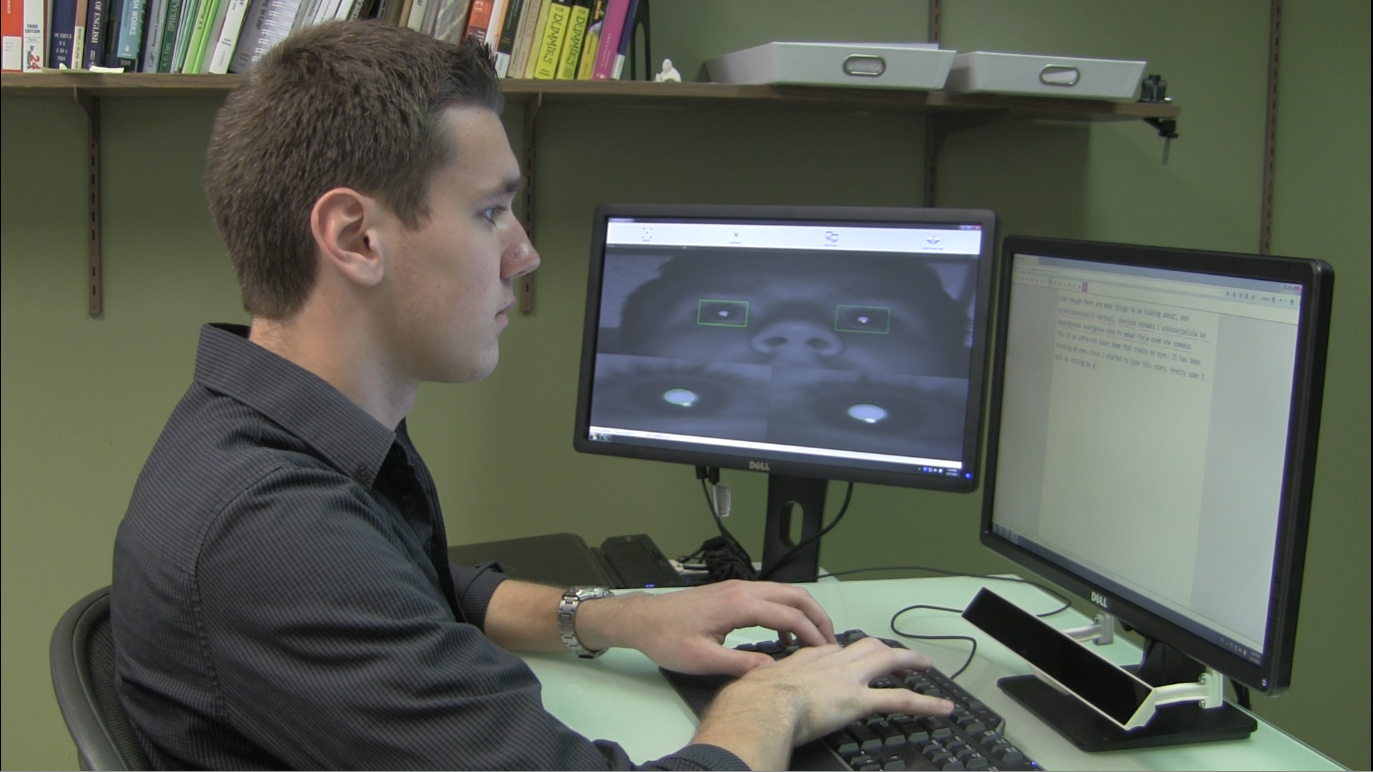When Miles Conlan realized the creative ways he could apply technology to language, he quickly switched his major from electrical engineering to linguistics.
The change turned a few heads – including his parents’ – but he knew he was making the right choice.
“When I saw all the ways I could apply linguistics to a real job, it convinced me I was making the right decision,” he said.
Conlan, who graduated in December, has always loved language. New technologies, such as Apple’s Siri, Amazon’s Echo, and even OnStar’s in-vehicle communication, sparked his interest in software’s role in individual language usage. He wanted to contribute to this new world of data-led communication, and his strengths in language and data analytics were a perfect match.
Opportunities for undergraduate research
As a junior, Conlan reached out to Evgeny Chukharev-Hudilainen, an assistant professor of English who teaches in the department’s Applied Linguistics and Technology Program, to help with a new project called CyWrite.
“As soon as I learned about CyWrite, I wanted to be involved,” Conlan said. “It was a really innovative project, and it was even more unique because the research team was allowing undergrads to participate.”
CyWrite is an automated writing evaluation tool developed by Iowa State University researchers to support writing instruction. Using natural language processing techniques, the program provides automatic feedback to students who struggle with writing. Many students whose first language is not English use the program. The team has been working on boosting the accuracy of feedback by using infrared light to track a writer’s eye movements across a screen while typing.
“When students struggle with writing, they are often struggling with a high-level thinking process,” Chukharev-Hudilainen said. “Instructors can offer advice, but they don’t know how a student writes, and we don’t know if students actually follow an instructor’s advice so we created a system to track their process of writing.”
“When students struggle with writing, they are often struggling with a high-level thinking process.”
Conlan joined CyWrite’s Natural Language Processing team, which analyzes huge sets of data to build the system and create an interface for the program. Currently they are tackling prepositions.
“For non-English speakers, prepositions are one of their biggest challenges,” he said. “The choice between ‘think of’ and ‘think about’ and ‘think to’ isn’t as obvious as it might be to a native English speaker.”
As a student struggles with a preposition, other word or sentence structure, CyWrite will eventually provide real-time feedback based on where their eyes are looking on the screen and offer suggestions. The indications are good: students who are using early versions of the project are reporting that writing is becoming a bit easier.
Valuable real-life experience
One of Chukharev-Hudilainen’s favorite aspects of the project is how interdisciplinary it is. Many of the faculty, as well as the students, come from diverse academic backgrounds that merge language and science.
“CyWrite is performing better than many commercial-grade systems,” Chukharev-Hudilainen said. “It has provided many of our undergraduates with valuable real-life experience, since we basically run like our own little software company.”
In fact, 25 undergraduates have worked on the project, and there is no doubt the experience will help their future. Conlan is excited for his next step.
“Majoring in linguistics and working on this project has prepared me for so much,” he said. “I’m thinking about law or graduate school after this. I may pursue a job in technology. Or teaching. Or research. I have a thousand options.”
The CyWrite project was awarded funding by both the College of Liberal Arts and Sciences’ Signature Research Initiative and the National Science Foundation. It is currently being used in all of Iowa State’s English 101 courses.
